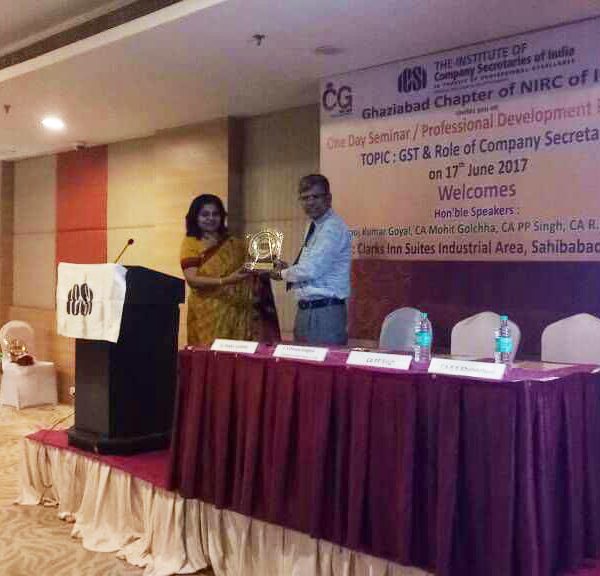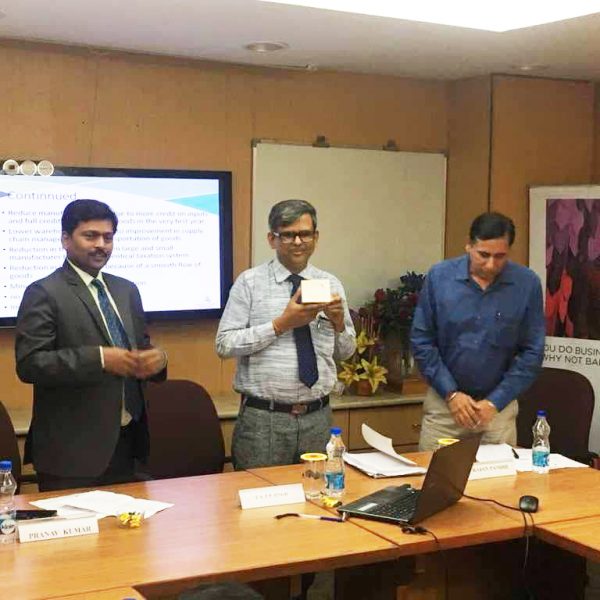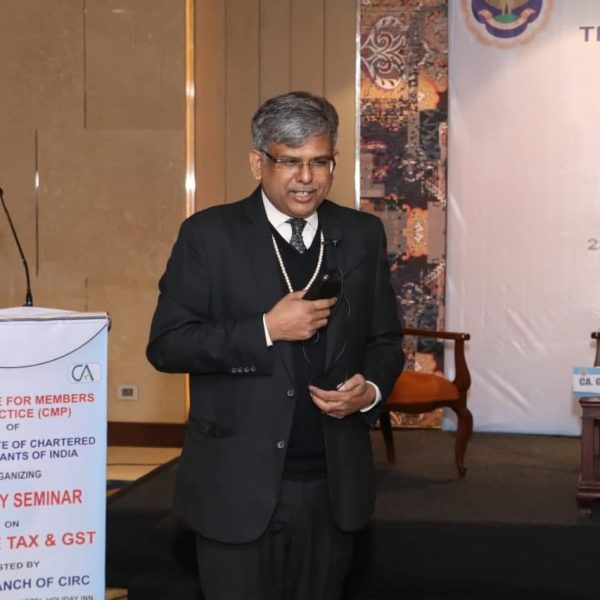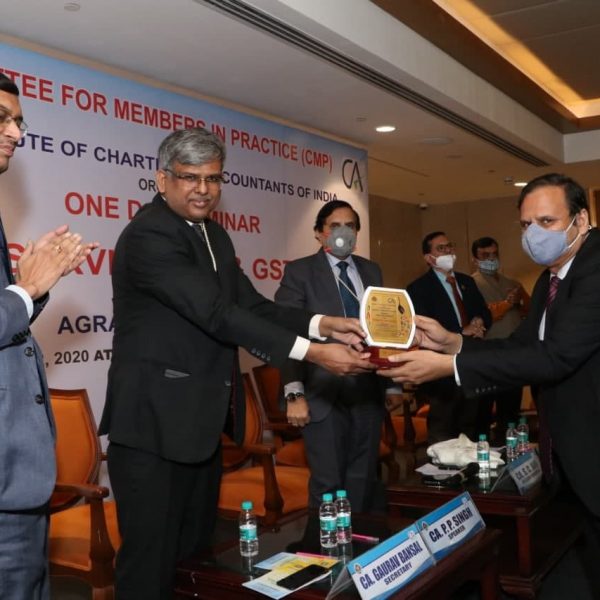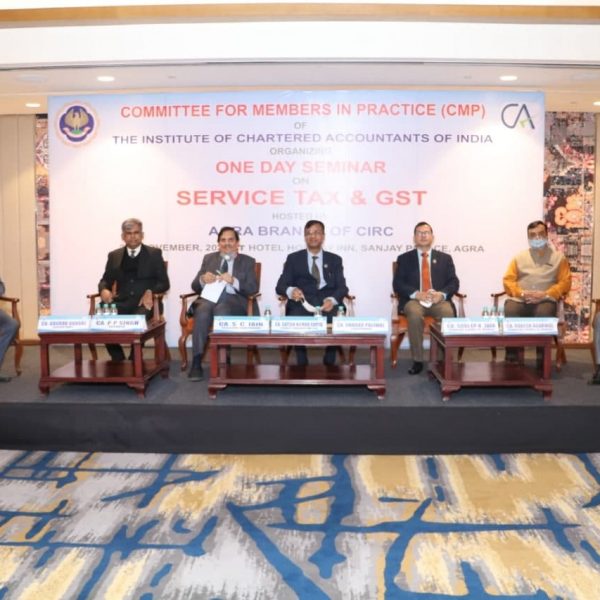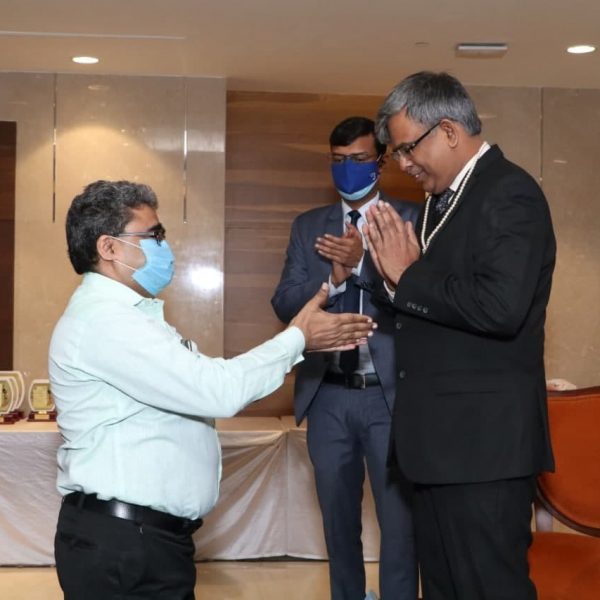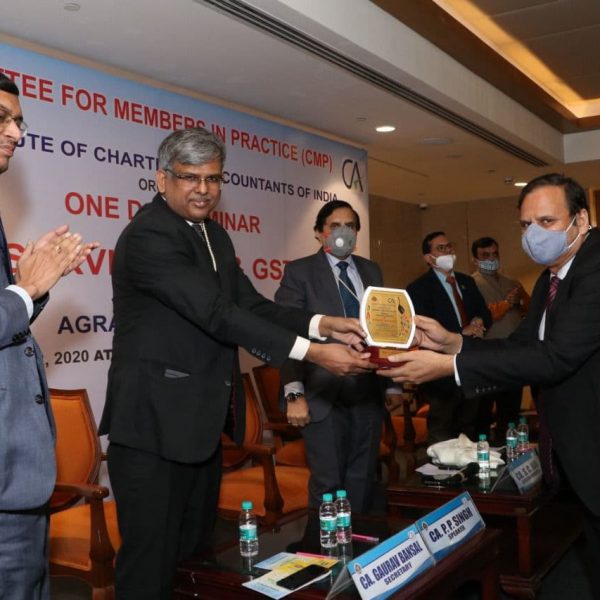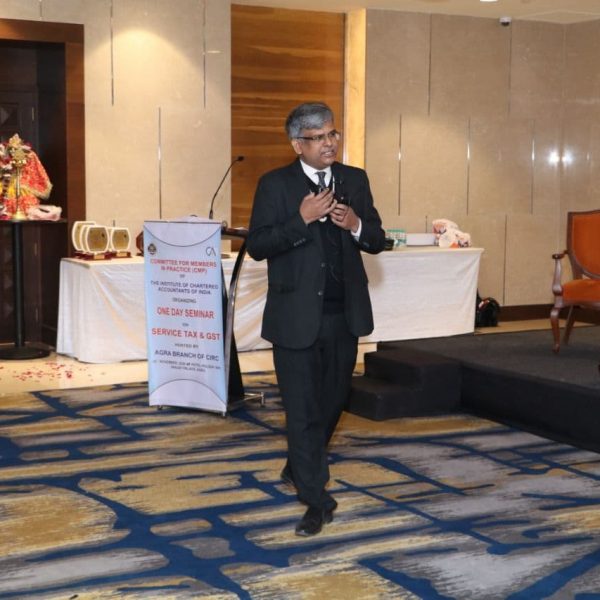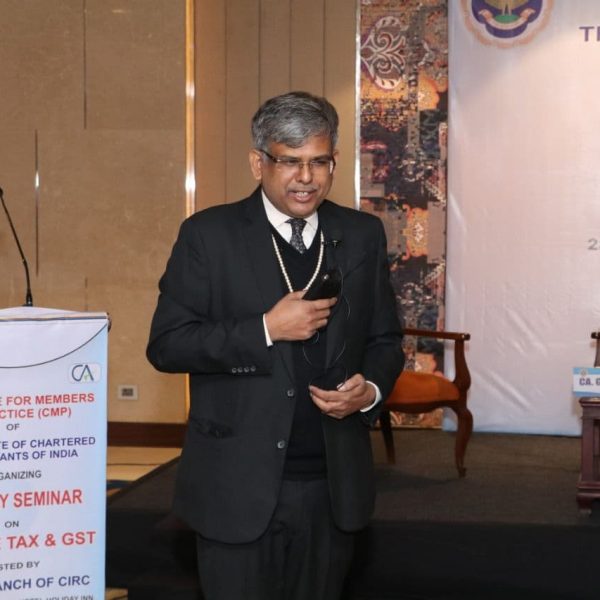Mechanism, time limits, and pre-deposit conditions and filing appeals under GST?
CHAPTER XVIII
APPEALS AND REVISION
Section 107.Appeals to Appellate Authority
Who can prefer an appeal?
any aggrieved Person with order on a decision of adjudicating authority under CGST/SGST/ IGST/UTGST /cess [section 107(1)] Any person aggrieved by any decision or order passed under this Act or the State Goods and Services Tax Act or the Union Territory Goods and Services Tax Act by an adjudicating authority may appeal to such Appellate Authority as may be prescribed within 3 months from the date on which the said decision or order is communicated to such person.
Appealable order or decision: all order or decisions are appealable except non-appealable orders under section 121 of the CGST/SGST Act. As per section 121 non-appealable orders or decisions are
(a) an order of the Commissioner or other authority empowered to direct transfer of proceedings from one officer to another officer; or
(b) an order pertaining to the seizure or retention of books of account, register, and other documents; or
(c) an order sanctioning prosecution under this Act; or
(d) an order passed under section 80 related to the payment of tax and other amounts in installments
Examples of appellable order:
cancellation of registration and revocation application rejected
the demand of tax, interest, and penalty as per order u/s73,74, the assessment order
dispute of time and value of supply
classification of goods/services or rate of tax, exemption
E-way bill, issue tax, penalty etc
Time Limit for preferring appeal
- 3 months of Communication of order or decision for the taxpayer
- 6 months of Communication of order or decision for the tax department. Higher time limit because the Commissioner has to call a file and examine the legality order and accordingly decide, if required to file an appeal, direct any subordinate officer to prefer an appeal.
Condonation of delay: if within time period allowed for Preferring, the appellant failed to prefer an appeal, & appellant was prevented by sufficient cause to the satisfaction of the appellate authority, the delay could be condoned by a month further.[ section 107(4)]
Note: delay to be explained along with reasons and supporting evidence causing delay. it is the discretion of the appellate authority to condone delay. but could not condone beyond a month.
leading case laws for condonation of delay:
Appeal by tax department: The Commissioner may, on his own motion, or upon request from the Commissioner of State tax or the Commissioner of Union Territory tax, call for and examine the record of any proceedings in which an adjudicating authority has passed any decision or order under this Act or the State Goods and Services Tax Act or the Union Territory Goods and Services Tax Act, for the purpose of satisfying himself as to the legality or propriety of the said decision or order and may, by order, direct any officer subordinate to him to apply to the Appellate Authority within 6 months from the date of communication of the said decision or order for the determination of such points arising out of the said decision or order as may be specified by the Commissioner in his order.[section 107(2)]
Where, in pursuance of an order under sub-section (2), the authorised officer makes an application to the Appellate Authority, such application shall be dealt with by the Appellate Authority as if it were an appeal made against the decision or order of the adjudicating authority and such authorised officer were an appellant and the provisions of this Act relating to appeals shall apply to such application.[section 107(3) ]
Condonation of delay: The Appellate Authority may, if he is satisfied that the appellant was prevented by sufficient cause from presenting the appeal within the aforesaid period of three months or six months, as the case may be, allow it to be presented within a further period of one month. [section 107(4)
section 107(5) Every appeal under this section shall be in such form and shall be verified in such manner as may be prescribed. An appeal in form GST APL-01, along with ground of appeal, Statement of facts, and verified in a prescribed manner as specified in rule 26. (Rule 108 CGST rule).
[section 107 (6)] Pre-deposit Condition for filing appeal: No appeal shall be filed under sub-section (1), unless the appellant has paid-
(a) in full, such part of the amount of tax, interest, fine, fee, and penalty arising from the impugned order, as is admitted by him; and
(b) a sum equal to 10% of the remaining amount of tax in dispute arising from the said order, subject to a maximum of Rs. 25 crore, in relation to which the appeal has been filed.
Provided that no appeal shall be filed against an order under section 129(3) unless a sum equal to 25% of the penalty has been paid by the appellant.
Stay of recovery Proceedings on pre-deposit under Section 107( 6) Where the appellant has paid the amount under sub-section (6), the recovery proceedings for the balance amount shall be deemed to be stayed.[Section 107(7) ]
Principled Natural Justice:
The Appellate Authority shall give an opportunity to the appellant of being heard.[Section 107( 8) ]
Adjournment Allowed:[Section 107(9) ]
The Appellate Authority may, if sufficient cause is shown at any stage of the hearing of an appeal, grant time to the parties or any of them and adjourn the hearing of the appeal for reasons to be recorded in writing:
Provided that no such adjournment shall be granted more than 3 times to a party during the hearing of the appeal.
Addition of new ground of appeal to the grounds of Appeal if No wilful omission
The Appellate Authority may, at the time of hearing of an appeal, allow an appellant to add any ground of appeal not specified in the grounds of appeal if it is satisfied that the omission of that ground from the grounds of appeal was not wilful or unreasonable.[Section 107(10)]
Power of Appellate authority – Nature of order he can pass.[Section 107(11)]
The Appellate Authority shall, after making such further inquiry as may be necessary, pass such order, as it thinks just and proper, confirming, modifying, or annulling the decision or order appealed against but shall not refer the case back to the adjudicating authority that passed the said decision or order:
Provided that an order enhancing any fee or penalty or fine in lieu of confiscation or confiscating goods of greater value or reducing the amount of refund or input tax credit shall not be passed unless the appellant has been given a reasonable opportunity of showing cause against the proposed order: No adverse order without opportunity of being heard.
No adverse order enhancing liability or Reducing refund without SCN: Provided further that where the Appellate Authority is of the opinion that any tax has not been paid or short-paid or erroneously refunded, or where input tax credit has been wrongly availed or utilised, no order requiring the appellant to pay such tax or input tax credit shall be passed unless the appellant is given the notice to show cause against the proposed order and the order is passed within the time limit specified under section 73 or section 74.
order in writing by Appellate Authority &must be speaking order.[Section 107(12)]
The order of the Appellate Authority disposing of the appeal shall be in writing and shall state the points for determination, the decision thereon, and the reasons for such decision.
Time Limit for deciding appeal.[Section 107(13)]
The Appellate Authority shall, where it is possible to do so, hear and decide every appeal within a period of one year from the date on which it is filed:
Provided that where the issuance of an order is stayed by an order of a court or Tribunal, the period of such stay shall be excluded in computing the period of one year.
On disposal of the appeal, the Appellate Authority shall communicate the order passed by it to the appellant, respondent, and to the adjudicating authority.
A copy of the order passed by the Appellate Authority shall also be sent to the jurisdictional Commissioner or the authority designated by him in this behalf and the jurisdictional Commissioner of State Tax or Commissioner of Union Territory Tax or an authority designated by him in this behalf.
Every order passed under this section shall, subject to the provisions of section 108 or section 113 or section 117 or section 118 be final and binding on the parties.
note: against the order of the appellate authority, an appeal could be preferred before the GST tribunal but not functioning at present only remedy is writ before HC under A-226.

